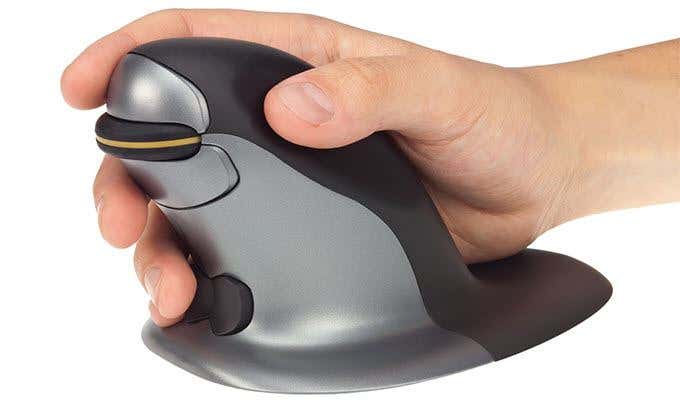We’re going to first look at the health issues that can be caused or exacerbated by computer use, and at the end we’ll look at what you can do to keep these things from happening. Or at least minimize them.
Migraines and Headaches
There are headaches and then there are migraine headaches. Excessive staring at a screen can contribute to the severity and frequency of both. Your eyes are literally brain stalks that have the ends exposed to the world. So everything you do with your eyes directly affects your brain. Staring at a bright light is bound to cause strain, leading to pain, and eventually a headache. For people who are already prone to migraines, excessive screen time can make them more frequent and worse. As Scott Tousley writes in his article, “The 60-Second Trick to Stop Headaches From Computer Screens at Night” this kind of strain, “…occurs in 50% to 90% of computer workers.”
Vertigo
Being a little dizzy sounds funny, but vertigo is a serious issue. Imagine feeling like you’re going to fall over all the time. And sometimes you do. Vertigo is closely related to migraines. So if excessive screen time can cause migraines, it can certainly trigger or worsen vertigo. Every computer screen has a flicker. Generally you don’t recognize it, but that does not mean you don’t see it. It still registers on your brain. That constant flickering can also cause or complicate vertigo.
Macular Degeneration
Imagine that there’s a darkened or blacked-out circle in the middle of everything you look at. That’s what macular degeneration does. This can happen just through aging and it affects more people than cataracts and glaucoma. But High Energy Visible-light (HEV) plays a factor. Like how staring at the sun is a bad idea. You’ve also heard HEV called ‘blue light’. Of course, computer screens are a source of HEV, often less than two feet from your eyes. The jury still seems to be out on this, though. Doctor of Optometry, Marc Grossman, OD, LAc. says, “HEV is a known risk factor in causing macular degeneration.”, so he seems to be saying it could happen. Stephen Rose, of the Foundation Fighting Blindness, says, “There is no evidence that sitting at a computer screen has any effect on the development of age-related macular degeneration or any other retinal problems.” Either way, why take the chance?
Depression and Anxiety
Excessive computer use doesn’t cause depression and anxiety but it can make it worse for many reasons. We know that exercise, good nutrition, fresh air and sunshine are powerful aides in dealing with depression and anxiety. Sitting in a dark room, staring at a screen and eating junk food is the exact opposite of that. And that’s what a lot of people do every day, whether it’s gaming or just keeping up with what the rest of the world is doing while you do nothing. Add to that the headaches, migraines, vertigo and other potential health issues and the depression and anxiety can only get worse. Plus the things that you see and hear will affect you. You’re seeing what people in the world want you to see. You’re seeing the brief moments where they are at their best. Then you look around you and feel like you’re not measuring up. Comparison is the thief of joy, as the saying goes. On the other hand, there are video games designed to help people with depression and anxiety. So, like any other tool, computers can be used to fix problems or, if misused, really destroy things.
Tics, Epilepsy, and Tourette
Syndrome
Tics and epilepsy aren’t conditions that are caused by computers, but they can be exacerbated by them. Tics are often related to Tourette’s Syndrome, so if excessive computer use can trigger tics it can also negatively affect people living with Tourette’s Syndrome. It’s also common knowledge that flickering lights can trigger epileptic seizures. Computer screens flicker constantly. It’s a part of how they work. In an article from the Tourette Syndrome Parents, their top recommendation to help reduce the symptoms of Tourette’s is less screen time. It’s that simple.
Carpal Tunnel Syndrome
As the name suggests, there’s a tunnel in your wrist. Through that tunnel travels the median nerve. If anything should happen to narrow the tunnel, it impinges on the median nerve causing pain, numbness, and mobility problems in the hand and arm. This could result in permanent damage and loss of function in the hand. The way most of us use computers can create the ideal conditions for inflammation around the carpal tunnel. Obesity can also increase the likelihood of carpal tunnel syndrome. There’s that inactivity from being on a computer all day coming in to play again.
Chronic Neck and Back Pain
We talked about being hunched over causing headaches before. That hunching can lead to poor posture and a host of neck and back pain problems. Smartphone use also contributes to this. Instead of lifting the phone up to eye level, people hunch over and look at the phone as they hold it somewhere around their waist. Keep that up and you’re going to look like a question mark, plus be in constant pain.
The Prevention and Possibly the
Cure
It’s painfully obvious what the top preventative measure is, isn’t it? Use computers and smartphones less. For screen-related issues, try lowering the brightness to match the brightness levels of the world around you. A reduction in the contrast between your screen and your surroundings can reduce eye strain dramatically. It also reduces the intensity of HEV or blue light that you’re exposed to. Consider using an app to help reduce blue light too, or calibrate your monitor. For vertigo, flicker headaches, and epilepsy, try changing the refresh rate on your monitor. Most default to 60Hz, which is also the same frequency that fluorescent bulbs use. So if you’re working on a computer in a room with fluorescent lighting, that’s a double whammy. Get your monitor on a different frequency and it should help. For carpal tunnel and other muscle and soft tissue issues, get your workstation, or battle station, set up to cause you the least repetitive strain injury (RSI) damage. Look at getting an ergonomic keyboard or vertical mouse to relieve wrist strain. And also get up and move. If that means taking a 5 minute break at the office every hour to get up and walk around, then do that. Do some stretches. If it means scheduling your gaming so that you don’t get sucked into playing for 24 hours straight, do that. If it means putting your phone on silent and in your pocket while you lift your head and look at the world, do that.








